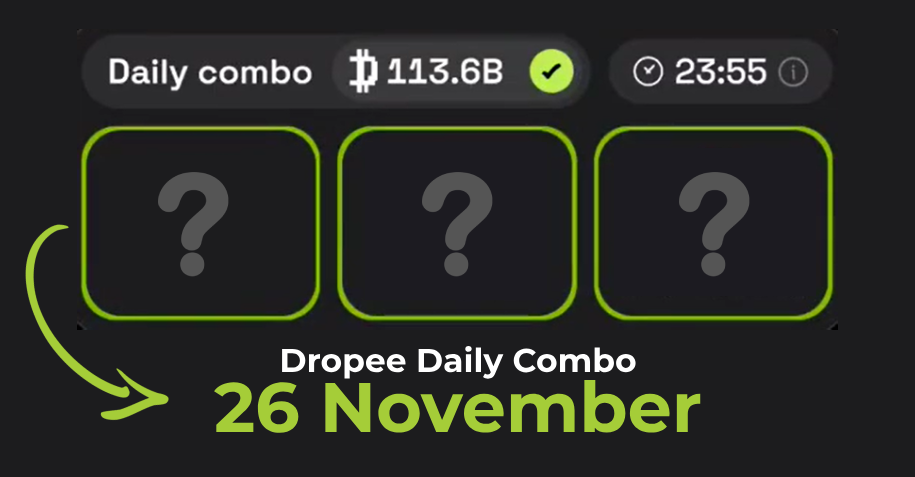Hardware wallets for Crypto and what the heck are crypto wallets?
The need of using a hardware wallet for crypto in 2024 is not only booming its became even more apparent in following years of the disastrous events of 2022, when users lost billions of dollars due to the FTX, Celsius, and BlockFi disasters.
As cryptocurrency holders sought security in Hardware wallets for Cryptocurrency, companies such as Trezor and Ledger experienced record sales that year. Finding this post was a luck if you were looking for a secure location to keep your cryptocurrency. Hopefully, you will find our recommended hardware wallets for crypto useful.
Let’s Imagine this scenario:
Your crypto portfolio is growing nicely. That BTC you bought a few years back is quietly pushing up its rockets for another moonshot. You have a significant amount of ETH, ready for the future of web 3. Perhaps you have a stack of altcoins that you intend to bury somewhere secure for the next decade. You log in on your exchange account on a regular basis to see how things are going and plan your next move, only to find zeros and news headlines announcing that hackers successfully hacked the exchange’s defences and your funds were lost.
If you have just a few hundred dollars stored up in your portfolio and everything is stored on a trustworthy exchange, you may not have much to be worried about; but, consider how many people were thrown off guard by the FTX crash. If you uphold your cryptocurrency on an exchange, make sure to enable all of the additional two-factor authentication settings and set up anti-phishing emails if your exchange offers them.
The best exchanges have robust security measures and invest heavily in their maintenance, making hacks unlikely. Losing family Bitcoin is not as severe as losing family silver.
HTX and FTX have faced catastrophic consequences due to hacks, such as the Mt. Gox fiasco and the BitGrail saga. These events, along with human error and mismanagement, have left users questioning the trustworthiness of centralized platforms.

Not your Keys, Not your Crypto. Image via Shutterstock
FTX, BlockFi, and Celsius have faced significant hacks and bankruptcy, causing millions of users to lose access to their funds. Despite lessons learned and security tightened, threats remain. Exchanges like Celsius, BlockFi, and FTX are often shady or poorly run. However, storing coins on an exchange does not control them, as private keys are held by the exchange. Guy recommends the top 6 methods for storing crypto, including FTX, BlockFi, and Celsius.
Top priorities for exchanges include security, KYC procedures, two-factor authentication, and whitelisted wallet addresses for withdrawals, ensuring users complete KYC procedures before registering and limiting withdrawals to specific addresses.
Not Your Crypto
Cold storage is a crucial practice for exchanges, storing funds in secure vaults with air gaps and armed guards. Users’ private keys, which contain access to digital gold, are stored securely, ensuring their security. Top exchanges also offer insurance to compensate investors affected by breaches, ensuring the safety of their users.

Binance Hack of $40m. Image via Bloomberg
Hackers pose a significant threat to crypto, with the potential for significant financial gain or theft. With advancements in technology, even the newest padlocks can become rusty. Additionally, ownership of crypto is a crucial concern. Those who have invested in crypto ranges often advise against keeping coins on exchanges, as it is a bad idea to keep them on an exchange. Therefore, it is essential to be cautious and aware of potential threats in the crypto world.
Hardware wallets for Crypto: Take Ownership of Your Crypto
To store your coins, consider three main options: mobile wallets, paper wallets, and QR codes. Mobile wallets offer more control over your crypto and allow you greater freedom to use it for goods and services. However, they are still connected to the internet, making them vulnerable to attack. Paper wallets, particularly popular among those born before 1970, are a more traditional method. They print out private keys, usually in the form of a QR code, and keep them safe. This method is beneficial for those who plan to hodl their coins for years, as it prevents them from being spent or sold.
Hardware Wallets Available Options
To store your coins, there are three main options:
Mobile Wallets: offer more control over your crypto and allow you greater freedom to use it for goods and services. However, they are still connected to the internet, making them vulnerable to attack.
Paper Wallets: Paper wallets, particularly popular among those born before 1970, involve printing out your private keys in the form of a QR code and keeping them safe. This method is beneficial for those who plan to hodl their coins for years, as it prevents them from being spent or sold. Overall, choosing the right wallet for your crypto needs is essential for maintaining control and security.
Hardware Wallets: A hardware wallet is the best option for those holding a decent amount of crypto, whether you’re a minnow or a whale. This article on the best cryptocurrency wallets hardware helps you choose the right one for your crypto needs, ensuring your coins are safe and secure.
List of Top Hardware wallets for Crypto in 2024
Overall Best Hardware Wallet: Trezor Safe 3
The Trezor Safe 3, the latest crypto wallet from leading Czech manufacturer Satoshi Labs, is a superior choice compared to the Trezor Model T, the flagship product of the Trezor brand. The Trezor Model T, which means ‘vault’ in Czech, was launched in 2013. While the Trezor Model T offers touch-screen capabilities, the Safe 3 offers a more secure element and higher security rating. The Trezor Safe 3 is available at a lower price, making it a win-win situation for both users and Satoshi Labs. The Trezor Model T remains a popular choice for those seeking touch-screen capabilities.
Trezor is a secure hardware wallet that supports over 8,000 crypto assets. It has been audited by third-party security researchers. It is widely considered the safest crypto wallet on the market and can be used with the online Trezor web wallet, downloaded Trezor suite app, or integrated with web 3.0 wallets like Metamask.
Trezor has also formed a unique partnership with the popular Exodus Wallet, combining the convenience features of the Exodus software wallet with the security of the Trezor hardware wallet. Trezor offers three hardware wallets: the less robust Trezor One, the Model T, and the Safe 3. The Model T and Safe 3 offer more coin support, while the Model T is more secure, as sensitive information is entered directly on the touch screen. The Safe 3 also has the benefit of the secure element.
2. Best Hardware Wallet For Backup & Recovery: Cypherock
Cypherock Review highlights the innovative approach of Cypherock, which eliminates the need for storing a recovery phrase on paper, thereby reducing single point of failure risk. This method offers self-custody and trustless storage, thereby enhancing user experience. Cypherock’s recovery method, decentralized using Shamir’s Secret Sharing, is a significant improvement over traditional methods. As long as two cards or one card and one device are present, funds can be recovered, and additional cards and devices can be ordered, thereby providing a robust backup solution.
Cypherock is a unique crypto wallet that offers a secure and user-friendly solution for recovering funds. It uses the BIP39 recovery phrase method, ensuring that users can easily access their recovery phrase to recover funds from other wallets that use the BIP39 standard. Additionally, if a device breaks and Cypherock goes bust, a mobile app is in development to allow users to recover their funds as long as they still hold onto two of the cards.
The Cypherock wallet can manage private keys for up to four wallets, serving as a seed-phrase vault for software wallets. Keylabs, the security team that audited Ledger and Trezor’s security, found impressive findings in Cypherock. The wallet is open-sourced, while the technology behind the cards remains proprietary.
The Cypherock device features an inheritance system for passing crypto onto loved ones and is one of the only hardware wallets capable of supporting portfolio management for multiple wallets. This makes it ideal for families or friends who want to share a wallet or Web3 business owners who need to keep personal and business funds separate.
Most Secure Cold Storage Wallet: NGRAVE ZERO
The NGRAVE ZERO is a promising hardware wallet that has gained attention from crypto users and investors such as Woodstock Fund, Morning Star Ventures, and DFG Group. This next-generation crypto wallet boasts the highest security certification standard possible, EAL7 (vs Ledger’s EAL5), RoHS and CE certified like the Trezor, and features a light sensor, biometric scanners, pin protection, and tamper-proof design.
The NGRAVE team has done an incredible job with the UX/UI of the device, making it more user-friendly than other wallets like Trezor or Ledger. The ZERO is made from military-grade premium materials with a metal case, making it far more robust than plastic hardware wallets on the market today.
The NGRAVE team has collaborated with world-leading institutions in nanotechnology, the Interuniversity Microelectronics Centre (IMEC), and a research group for applied cryptography, The Computer Security and Industrial Cryptography (COSIC) to ensure high-security standards. Jean-Jacques Quisquater, one of the most respected cryptographers in history, was cited as the #2 reference in Satoshi’s original Bitcoin Whitepaper and teaches as a professor of cryptography. Together, they created the “Perfect Key” and the NGRAVE GRAPHENE, which make up the first ever recoverable recovery phrase without exposure to third-party risk.
The price of the NGRAVE ZERO is steep, but the high robust security features, private keys not coming pre-installed on the device, and the ability to be randomized upon setup, make it worth the higher price point.
Best Hardware Wallet for Long-Term Storage: BC Vault
BC Vault is a unique and highly secure crypto wallet that outperforms industry leaders Ledger and Trezor. It supports millions of coins and tokens, with 2,000 unique wallet addresses and hundreds of chains. BC Vault’s recovery method is seedless cold storage, requiring no third-party trust and providing more security than traditional recovery phrases. Its ferromagnetic RAM (FeRAM) chip can function for over 200 years, making it suitable for multi-generational use.
Private keys on BC Vault are user-generated for ultimate anonymity, unlike devices like Trezor, Ledger, and ELLIPAL, which come pre-loaded with private keys. The company behind BC Vault, a cybersecurity firm, has been operating for over 20 years and hosts the largest security conference in the Adriatic region.
BC Vault is the only wallet that can be safely shared between friends and family members, with up to 2,000 accounts created and pin/password protected. Additionally, each of the millions of supported assets is natively supported, eliminating the need to connect to third-party programs for asset management.
Best Hardware Wallet for Crypto DApps + DeFi: ELLIPAL Titan
The Ellipal Titan is a cold storage wallet that operates in complete network isolation, providing true offline cold storage. Despite its higher cost than the entry-level Trezor One and Ledger Nano S, the ELLIPAL Titan offers extensive coin support and is sealed for dust and water-proofing. It also features an anti-tamper feature that deletes all private keys if a physical break-in attempts to tamper with the device. The wallet is secured via a passcode, ensuring users use a strong passcode and store it securely.
The ELLIPAL Titan is kept completely separated from network connectivity, relying on QR codes for data transfer. It cannot be connected to any connections such as USB, Wifi, or Bluetooth, protecting crypto against remote and network attacks. The wallet supports 46 different blockchains and 10,000+ crypto assets, allowing users to stake assets, earn interest, access DApps and DeFi protocols, and buy or exchange crypto through the corresponding mobile app.
However, the default Bitcoin address generates the BIP 44 Bitcoin address instead of the new BIP 84 Bitcoin addresses, potentially leading to more expensive transactions. Additionally, the Ellipal wallet does not provide access to users’ own Xpub keys, making it not operable with many apps and not allowing import of “view only” wallets.
Conclusions
In the realm of cryptocurrency security, hardware wallets stand out as formidable guardians of digital assets. In our article “5 Powerful Top Hardware Wallets for Crypto in 2024,” we delve into the top contenders dominating the market. Trezor Safe 3 emerges as the overall best hardware wallet, offering robust features and reliability. For those prioritizing backup and recovery options, Cypherock shines with its innovative solutions. Seeking the utmost security in cold storage?
Look no further than NGRAVE ZERO, renowned for its impenetrable fortress-like protection. BC Vault earns its place as the best hardware wallet for long-term storage, ensuring the safekeeping of assets over time. Lastly, for enthusiasts of crypto DApps and DeFi, ELLIPAL Titan emerges as the prime choice, seamlessly integrating with the decentralized world. With these five powerful hardware wallets, investors can navigate the crypto landscape with confidence, knowing their assets are safeguarded by the best in class.






